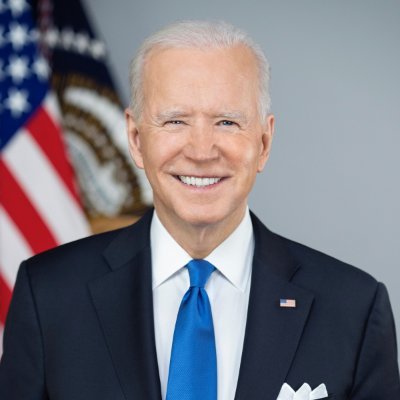When ol' Lizzie died, the Archbishop of Canterbury let us all know that God dropped him a message to say the King Charles should succeed to the throne, which worked out awfully lucky with what was already being planned. The Head of State of the United Kingdom is claiming to derive their authority from God (aka Divine Right of Kings), state and church are officially unified and clerics are a required part of the legislature, does that not make it a Theocracy by any reasonable definition?
I think this is where you get into de facto and de jure arguments. The UK is a de jure theocracy, sure. But the reality is that the Church of England specifically - and religion more generally - afaik doesn't seem to have any real political power. It seems like capital doesn't really need them to help wield political power.
Now in the US, I'd argue it's the opposite: separation of church and state on paper but in many ways it is a de facto theocracy. The religious - white evangelicals in particular - have tremendous soft power as well as social power in a lot of places (try having much of a social life outside of church in the south outside of Atlanta, for example). Of course, this is because the religious in the US are particularly valuable to capital.
So sure, the UK may be a "theocracy" on paper but I don't think it means much.
For sure, all of this is entirely agreed, just looking at the technical observations.
This is like how the UK isn't really a monarchy because the monarch rarely exercises their near absolute power. Strangely, the degree of nuance afforded to the arrangement of power in the UK is not only not afforded to many other countries, but their actual nuanced distribution of powers is outright ignored in favor of calling them absolutist dictatorships.
I wanted to gulag my comparative politics professor multiple times.
No, the role of the First Estate is to affirm God's approval of the divine right of the monarch to rule. The Second Estate still keeps order and bears arms to do just war against the enemies of the realm.
You, in the Third Estate, need to get back to tilling the fields
"And all of that is good and cool and shouldn't be changed." - the Fourth Estate
Christian nations can’t be theocracies because Christianity is a dead religion with a dead god. The only live abrahamic religion currently is Islam.
By this, I mean that only practitioners of Islam have a widespread living religious community of deeply felt spirituality. Christian and Jewish faiths are cynical, commercial or cultural vestiges that everyone knows deep down are not spiritually true
Thus, any Christian or Jewish “theocracy” is a mask for a more pragmatic and cynical political force, such as a bourgeois dictatorship hiding behind a cross or Star of David. Muslims are capable of creating a theocratic social order because they actually believe it is true, but they are following in the same capitalist developmental footsteps as the Christian nations and Islam there will die and become cynical and hollowed out soon as well (one could argue this is already well underway in the gulf states).
Well, this is certainly a take, especially when Salafism/Wahhabism is dominant in Sunni ideology.
See my last paragraph, Wahhabism is the synthesis of Islam and cynical capitalism and imperialism. It is a tumor growing on Islam and will kill it if left untreated
See my last paragraph, I specifically mentioned that the gulf states are already underway in the process of their religion dying and becoming hollowed out
Isn't your first paragraph fundamentally disproven by the very existence of like half of subsuharan africa? Like there are explicitly theocratic christian rebelliosn, who fight for the creation of a "christian" state on par with the islamic theocracies of the MENA.
All of the "theocracies" of subsaharan Africa are neo-colonial comprador (bourgeois) dictatorships, Christianity in this context is used extremely cynically to divide and manipulate its population against its own interest and keep it subservient to international capital and their comprador agents. Whereas Iran is not ruled by neo-colonial compradors but has a national bourgeois component (the "Republic") and a theocratic component (the will of the religious body, truly believed to be holy by a portion of the population)
Pardon my ignorance, but if I'm understanding you right, then for any government to be described as a theocracy, it needs to have it's neo-colonial compradors removed from power? And some sort of religious buy-in from the resident population? Given these parameters, then your argument makes slightly more sense. Still don't really know how many of the rebel groups that claim to want theocracy are actually supported by neo-colonial interests, but I guess that's the fun part of imperialism still having so much sway over multiple continents.
My point is that capitalism desecrates and denatures everything it touches into transactional and exploitative mechanisms. It has already killed the Christian god and the Jewish god. Predominantly Muslim areas have historically developed much later and been exposed to full capitalist forces much more recently, so their god is merely dying instead of dead.
This is a necessary step in the dialectical journey to communism though, as the true worship of god is eradicated by capitalism and then must be re-kindled again by communism, but instead in the form of worshipping humanity as a whole as sacred, and worshipping our ecology as sacred
Doesn't capitalism require the populace to actually benefit from the "profaning" of the sacred? Like a population in a historically underdeveloped place, which is now being exposed to capitalism, is not going to abandon faith in god, if capitalism doesn't actually deliver material gains to the population group. For the islamic world specifically, I sort of think that the profaning of the sacred has already happened / begun happening, which is why you see so much weird shit being made in the Gulf States. But in places without massive bounties of exploitable natural ressources, like Indonesia, Pakistan, Egypt, or Morocco, you don't see quite the same level of "disregard" (for lack of a better and more neutral term) for the old traditions that you see in the Gulf.
The Archdruid of Canterbury is pretty far from being a typical Christian. The current occupant is very in favor of LGBT issues.
To say they 'stay out of politics' is a hell of an overstatement. The Royal Family in the UK have many, many times refused to pass legal bills until they were amended to suit them. Mainly for the purposes of excluding them from any taxes, responsibilities or regulations, which is why having the royal estate as your landlord is actually awful - they're not really beholden to anything. And that's only the most direct intervention - they're regularly consulted by the government for direction and advice, and of course have many other mechanisms of power that are still very real.
he's not an atypical English Christian. Americans are just weird and insane
Semi related: a lot of English universities (including Oxford and Cambridge) didn’t allow non Anglicans until 1871
technically more of a monarchy than a theocracy because the monarchy created the church of england in the first place, and materially more run by a bunch of eton & city of london dickheads who do too much of the wrong drugs
Yeah.
It's also a state that should've cut its royals' heads off a long ass time ago.
I'd say that you can use the Confessional State label without any sort of controversy, while the label Theocracy would have to be part of a broader critique. From what I understand the british House of Lords doesn't have the power to veto anything that the Commons do. And however Divine is the Right of Kings, stuff like Royal Assent subsists due to the rights of a head landlord rather than that of a head preacher. Case in point if I'm not mistaken the Queen's use of Assent was in respects to laws affecting her estate rather than religious law.
When people say Theocracy they mean old Tibet, Iran or Vatican City. Imagination goes straight to priesthoods which serve in some way as the bureaucratic apparatus of the state. I'm not British, but to what extent does the influence of something like the lords spiritual and the Church of England exists due to a cultural cachet, economic levers, or social status rather than hard constitutional power?
It's literally true, the monarch is the head of the Church of England, the country is led by the leader of a specific religion.








